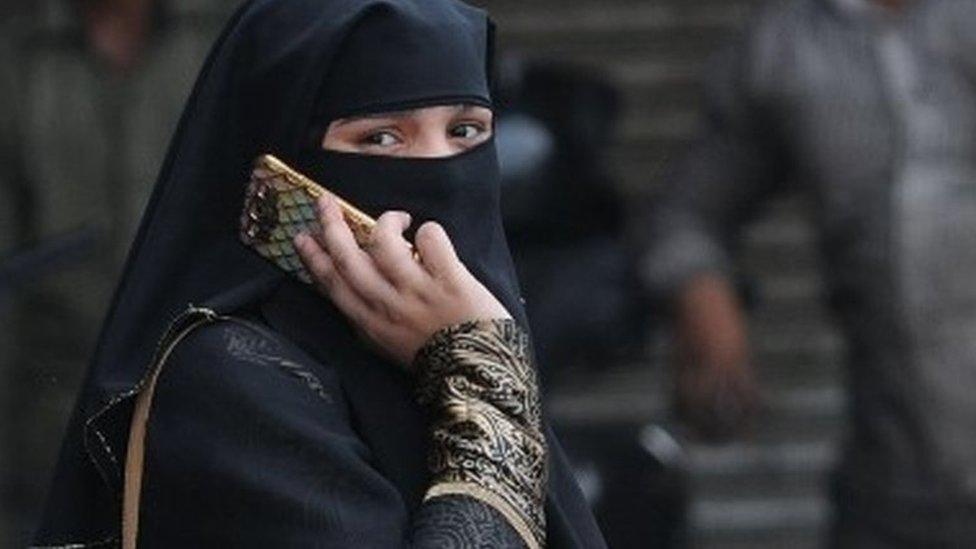India cabinet backs bill to criminalise Islamic instant divorce
- Published

Muslim women and rights groups have been campaigning for years against "triple talaq"
The Indian cabinet has backed a bill that will make the Islamic practice of instant divorce a criminal offence.
The bill proposes jail of up to three years for a Muslim man who indulges in the controversial practice.
The government hopes to get the bill passed by parliament in the winter session, which began on Friday.
In a major victory for women's rights activists, the Supreme Court outlawed the "triple talaq" practice in August and called it "un-Islamic".
India is one of a handful of countries where a Muslim man can divorce his wife in minutes by saying the word talaq (divorce) three times.
Muslim women and rights groups have been campaigning for years against the custom.
Campaigners have described it as humiliating and discriminatory.
The bill, called the Muslim Women (Protection of Rights on Marriage) Bill, has been drafted by a group of ministers, led by Home Minister Rajnath Singh.
The Indian government, led by the Hindu nationalist Bharatiya Janata Party (BJP), has supported ending the practice.
Prime Minister Narendra Modi has brought up the issue several times, including in his Independence Day address on 15 August.

What is instant divorce?
There have been cases in which Muslim men in India have divorced their wives by issuing the so-called triple talaq by letter, telephone and, increasingly, by text message, WhatsApp and Skype. A number of these cases made their way to the courts as women contested the custom.
Triple talaq divorce has no mention in Sharia Islamic law or the Koran, even though the practice has existed for decades.
Islamic scholars say the Koran clearly spells out how to issue a divorce - it has to be spread over three months, allowing a couple time for reflection and reconciliation.
Most Islamic countries, including Pakistan and Bangladesh, have banned triple talaq, but the custom has continued in India, which does not have a uniform set of laws on marriage and divorce that apply to every citizen.
